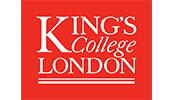Clinical trials are tightly controlled. They are established to answer specific questions and test hypotheses from researchers, patients, companies, and the government.
Each trial team needs to write a detailed plan which is called a ‘Trial Protocol’ and must follow the guidelines explicitly. The protocol is sent for peer review and if required, funding is sought.
In addition to the Trial Protocol, Standard Operating Procedures (SOPs) and the Trial Master File (TMF) must be in place before the start of the study. These SOPs cover all activities involved in a clinical trial such as the design of the CRF and set-up of the trials database. A TMF contains the key files (e.g. informed consent forms, signed protocols) which can be accessed and evaluated by auditors to ensure the trial and its data meets relevant EU legislation.
Once funding is granted, if you are undertaking a research project in an NHS setting, the NHS Health Research Authority (HRA) will need to approve the trial before it can proceed. If the trial is taking place in a non-NHS setting, you do not need HRA Approval but may still need approval from a Research Ethics Committee (REC) to confirm the trial is ethical.
If HRA/REC approval is granted and a trial site (e.g. hospital, university or research clinic) has been identified, the trial can begin.
If the trial is taking place in at least one EU country, it must be registered with EudraCT, a European database of clinical trials.
Typically, the clinical trial team will consist of:
- trial sponsor(s), who fund the research e.g. pharmaceutical companies, charities, the NHS or UK Government
- doctors, nurses and other clinicians
- patients
- trial managers and coordinators
- data managers
- quality assurance managers
- IT / developers





















